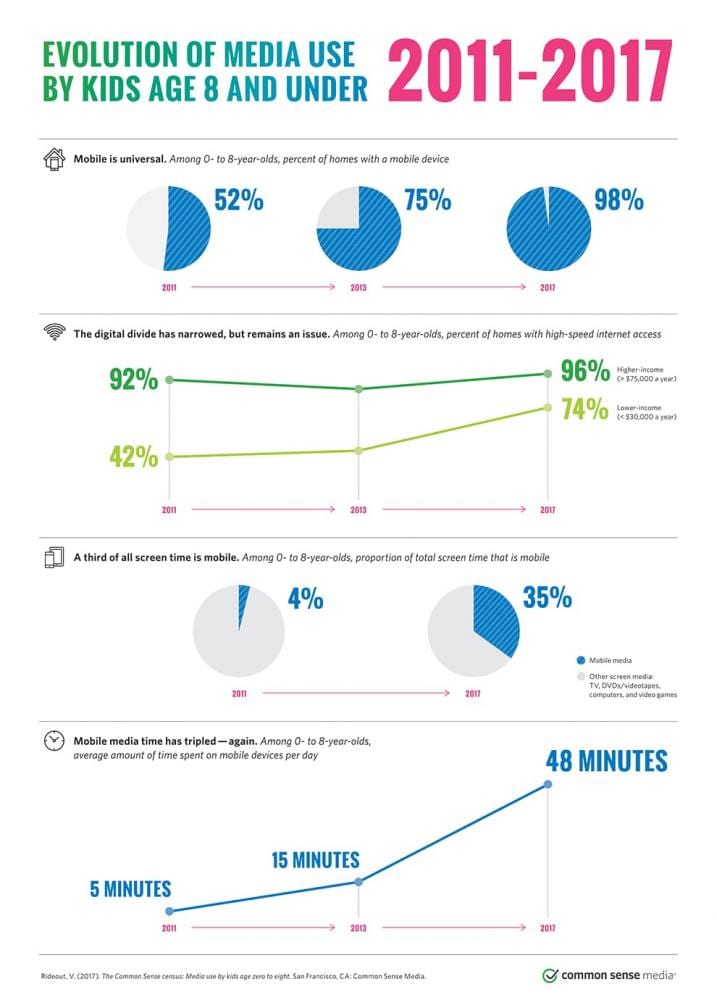Babies and young children are accessing and viewing media in new ways now that the majority of American families have mobile and internet-connected devices at home. Smartphones, tablets, and other devices also present new challenges and opportunities for parents introducing media to their kids for the first time.
Combined with the data from the 2011 and 2013 reports, the 2017 Zero to Eight study gives us a clearer view of how young children’s media use has evolved over time and provides a foundation for how we can use technology to support children’s learning, play, and growth. Take a look at the infographic and read our blog post for highlights.
Source: Zero to Eight Census Infographic | Common Sense Media



